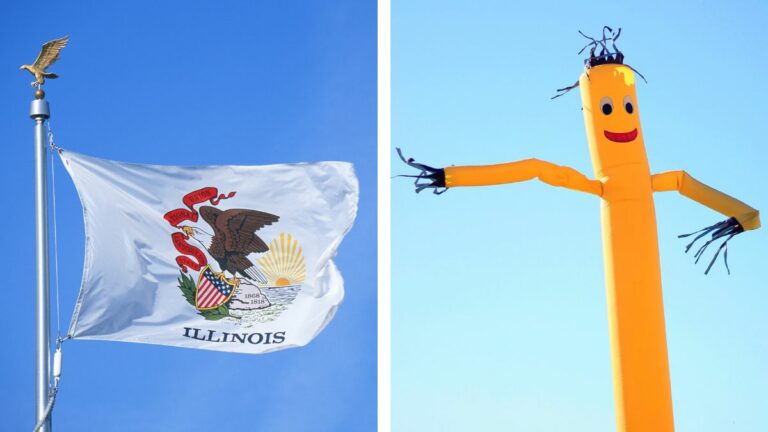
Illinois Internet Gaming Act sponsor Edgar Gonzalez Jr. is in a contested primary race that will see an outcome on March 19. So, it’s perhaps unsurprising that the state’s most outspoken advocate of real-money online casino legalization wasn’t present on March 13 at the committee meeting of the body currently considering his bill.
Before his reelection campaign entered overdrive, state Rep. Gonzalez, D-Chicago, told Bonus on Jan. 13 that he would ensure lawmakers continued to discuss legal iGaming. Simultaneously, he told Bonus he doubted there would be much movement toward passing HB2239 because it’s an election year.
Hence, HB2239 hasn’t budged since it entered the House Gaming Committee on Jan. 31. So, although the Internet Gaming Act is No. 1 on the list of bills housed by the committee, it wasn’t on the agenda for the body’s March 13 meeting.
Similarly, state Sen. Cristina Castro, D-Elgin, was among the legislators voting on Feb. 8 to move her Internet Gaming Act from the Gaming Committee she heads to the Senate Subcommittee on Gaming, Wagering, and Racing. SB1656 hasn’t moved.
Also, Gonzalez didn’t immediately return requests for comment from Bonus after the March 13 House committee meeting.
Looking at his Facebook page, Gonzalez appears to be on the campaign trail as 22-year-old Saint Xavier University student Joseph E. Mercado runs against him in the Democratic primary.
Castro’s race is uncontested.
The Gonzalez-Sponsored Internet Gaming Act
Gonzalez told Bonus on Jan. 13 that he would continue bringing it up as budget discussions continued because it’s a possible new revenue source. Lawmakers must vote on the budget by May 31. So, there is still time for Gonzalez to discuss it with his colleagues.
If Illinois legislators were to enact his version of the Internet Gaming Act today, Bonus estimates it would generate $275 million annually in tax revenue at the 15% tax rate Gonzalez proposed.
That 15% tax rate matches what online sportsbook operators pay. That marketplace launched in 2020. Since Illinois legalized sports betting, revenue has reached nearly $2.5 billion, according to Legal Sports Report. Bonus and LSR are Catena Media publications.
Along with online sportsbooks, Illinois allows retail sports betting. Both marketplaces continue to expand, with the latest addition being the March 15 debut of the DraftKings Sportsbook at Wrigley Field.
Meanwhile, the Internet Gaming Act hasn’t yet been included in the $52.7 billion budget. Gov. J.B. Pritzker announced his 632-page-long Fiscal Year 2025 budget outline on Feb. 21.
Internet Gaming Act vs. Wind Socks
The Gonzalez-sponsored Internet Gaming Act may have been No. 1 on the list of bills in the House Gaming Committee, but it wasn’t on the agenda for the March 13 meeting. Instead, bills concerning the Illinois Lottery and video gaming terminals (VGTs) populated the topics.
So, the seven present committee members out of the body’s total of 16 didn’t constitute a quorum and could only discuss subjects.
Most of the bills about the lottery were cleaning up items like HB5229, which removed the word “pilot” from content concerning the iLottery.
Perhaps that’s why a discussion on the topic of human-shaped wind socks took up a fair amount of time.
State Rep. Jay Hoffman, D-Swansea, explained that some VGT licensees used their temporary “slots” banners and “blow up people” past their permitted 90 days for the interim advertisements.
Hence, Hoffman introduced HB2360:
Amends the Video Gaming Act. Provides that no licensee under the Act is permitted to advertise its video gaming operation using physical advertisements outside the video gaming location or on off-premises billboard signs, unless directly and permanently affixed to a building on the video gaming location or on a permanent pole sign that is permanently affixed to a foundation.
He said the bill about Video Gaming — Restrict Ads would get rid of the “unsightly” advertisements.
Hoffman said:
I think they’re tacky. I think they’re tasteless.
In his opinion, the banners and wind socks make parts of Illinois look like “a poor man’s Vegas.”
State Rep. Robert Rita, D-Blue Island, laughed as he asked Hoffman:
Can you help describe what a blow-up person is?
If Rita’s name sounds familiar to online casino advocates, it’s because the Gaming Committee vice chairman spearheaded efforts to pass the Internet Gaming Act before Gonzalez took the reins.
Meanwhile, for context about VGTs, Illinois houses more than 45,000 VGTs in 8,200 locations, including restaurants, bars, and truck stops. Licensees represent a powerful lobbying group because the machines brought in $2.7 billion in revenue in 2022. While they haven’t made their opposition to legalizing real-money online casinos, they represent the types of existing gambling interests that often claim iGaming will cannibalize revenue.
State Rep. Eva-Dina Delgado, D-Chicago, noted that the Windy City had no VGTs. However, another bill currently active in the Senate would prevent the city from banning them without putting the question to its residents in a referendum.





